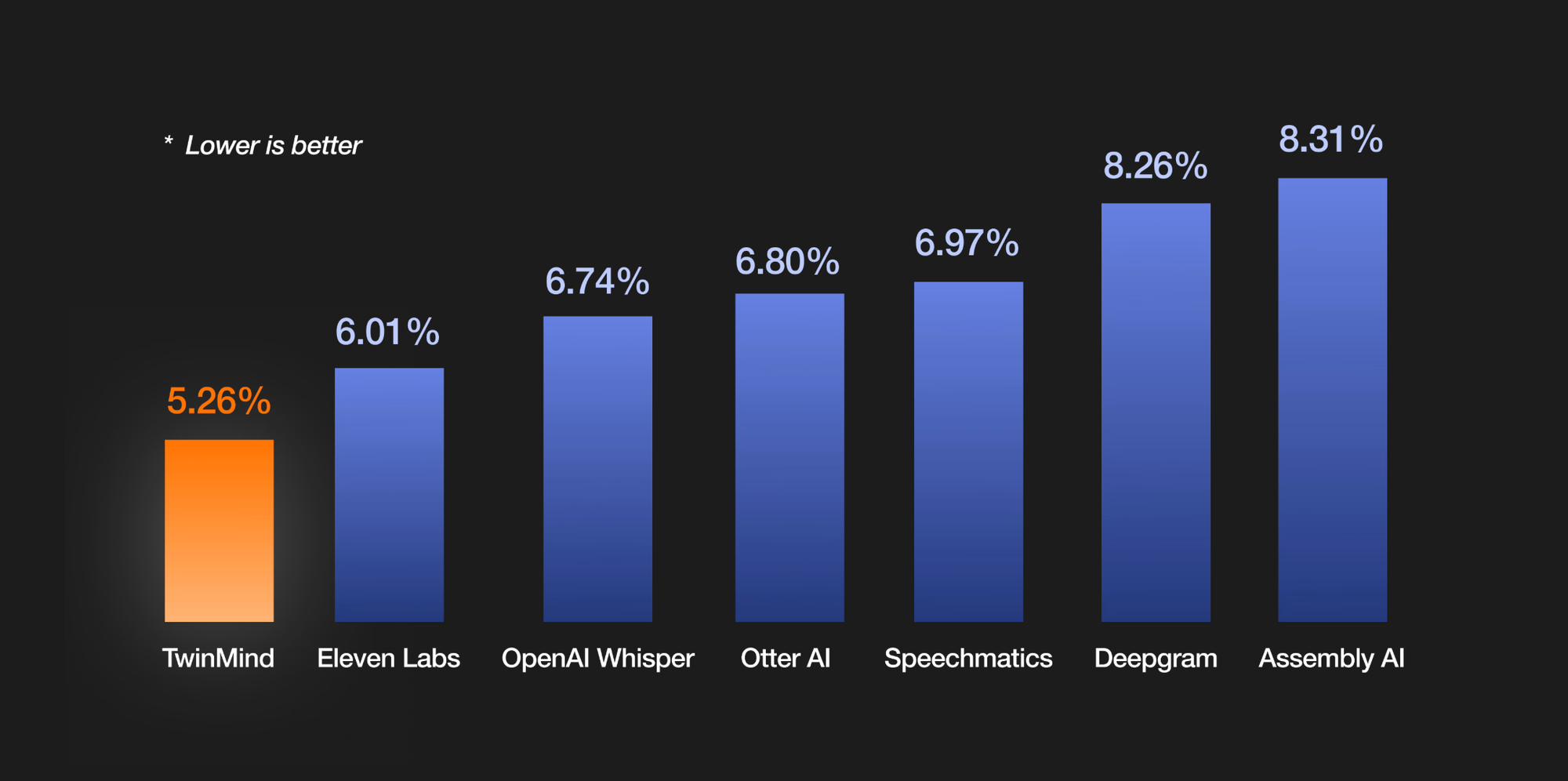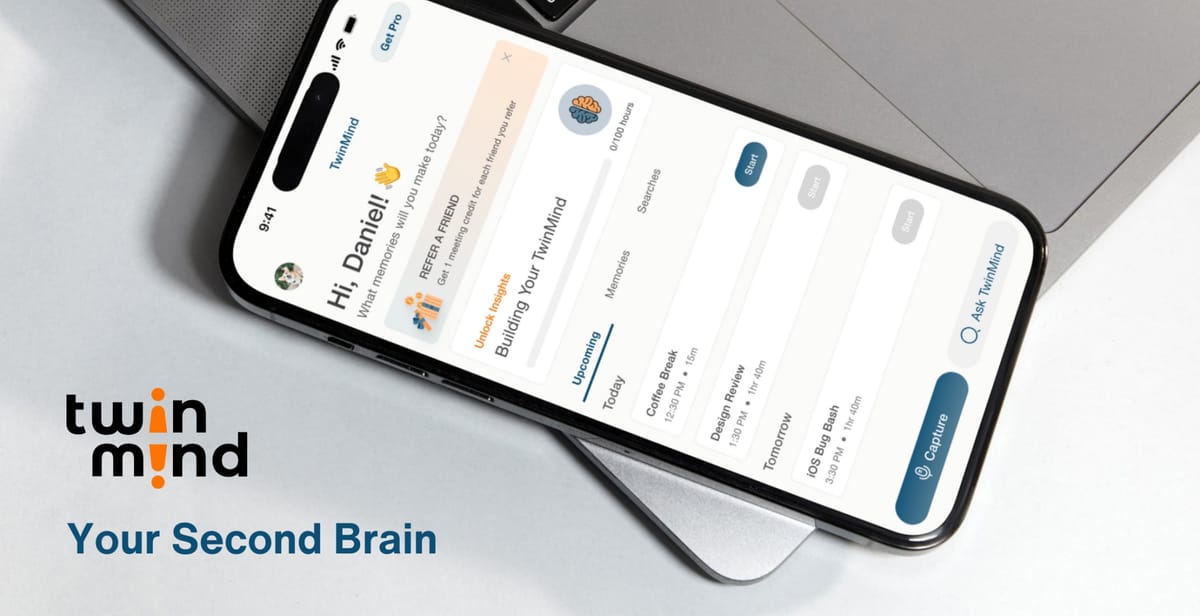TwinMind, a startup founded by ex-Google X researchers, is betting that the next step in personal productivity is an AI that quietly listens, constantly learns, and proactively assists. With its new Ear-3 model, Android and iPhone apps, and a fresh $5.7 million seed round, TwinMind is moving to turn that bet into reality.
Key Points:
- TwinMind raised $5.7M in seed funding led by Streamlined Ventures, with Sequoia Capital and Stephen Wolfram participating
- The app runs continuously for 16-17 hours on a single charge, transcribing everything locally on your phone
- Their new Ear-3 model beats Google, OpenAI, and others with 5.26% word error rate and supports 140+ languages
Daniel George, Sunny Tang, and Mahi Karim spent years at Google X working on moonshot projects. George alone worked on six projects, including the AI-powered earbuds team that recently made headlines for suing OpenAI and Jony Ive. Now they're taking their shot at fixing what they see as AI's biggest weakness: its complete inability to remember anything about you.
The trio's startup TwinMind, founded in March 2024, has raised $5.7 million in seed funding led by Streamlined Ventures, with participation from Sequoia Capital and Stephen Wolfram. This values the company at $60 million post-money.
The pitch is simple: TwinMind listens to everything. With your permission, it runs in the background on your phone, capturing ambient speech to build what the founders call a "personal knowledge graph".

The company just dropped Ear-3, a speech recognition model that achieved a 5.26% word error rate — beating the previous best from Eleven Labs (6.01%). It supports over 140 languages (that's 100 more than Otter and 40 more than OpenAI's Whisper) and somehow manages to be the cheapest option at $0.23 per hour of audio. The app works offline, processes audio in real time to transcribe on-device, and can capture audio continuously for 16 to 17 hours without draining your battery.
There is also a Chrome extension that takes this further, capturing what you're browsing (with permission) and integrating with Gmail and Slack. It's the kind of comprehensive data collection that would make privacy advocates nervous, though the founders insist they don't train models on user data and process everything locally when possible.
The company already has over 30,000 users with 15,000 active monthly. The U.S. is their biggest market, but they're seeing traction in India, Brazil, and Europe. Professionals make up 50-60% of users — people who sit through enough meetings to appreciate having a perfect memory.
Still, there are big challenges. Always-listening AI raises privacy, battery, and trust concerns. Accuracy in noisy settings, cross-speaker confusion, multilingual edge cases still test even top models. And monetizing such proactive services without feeling invasive is a tough balance.

